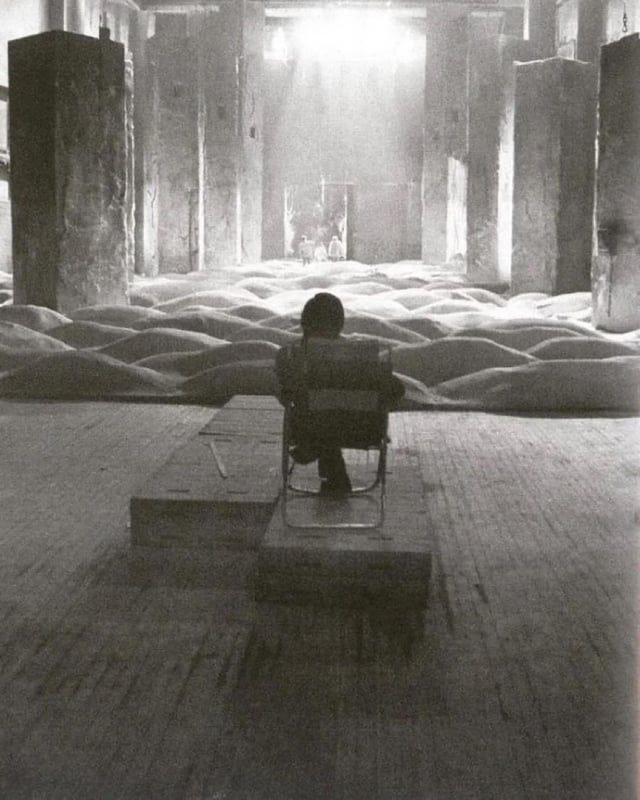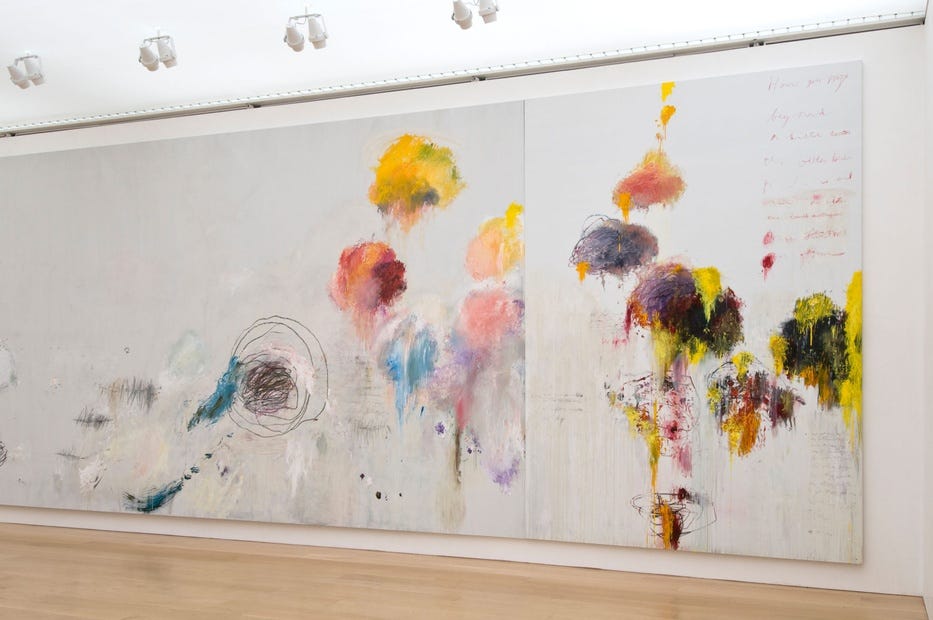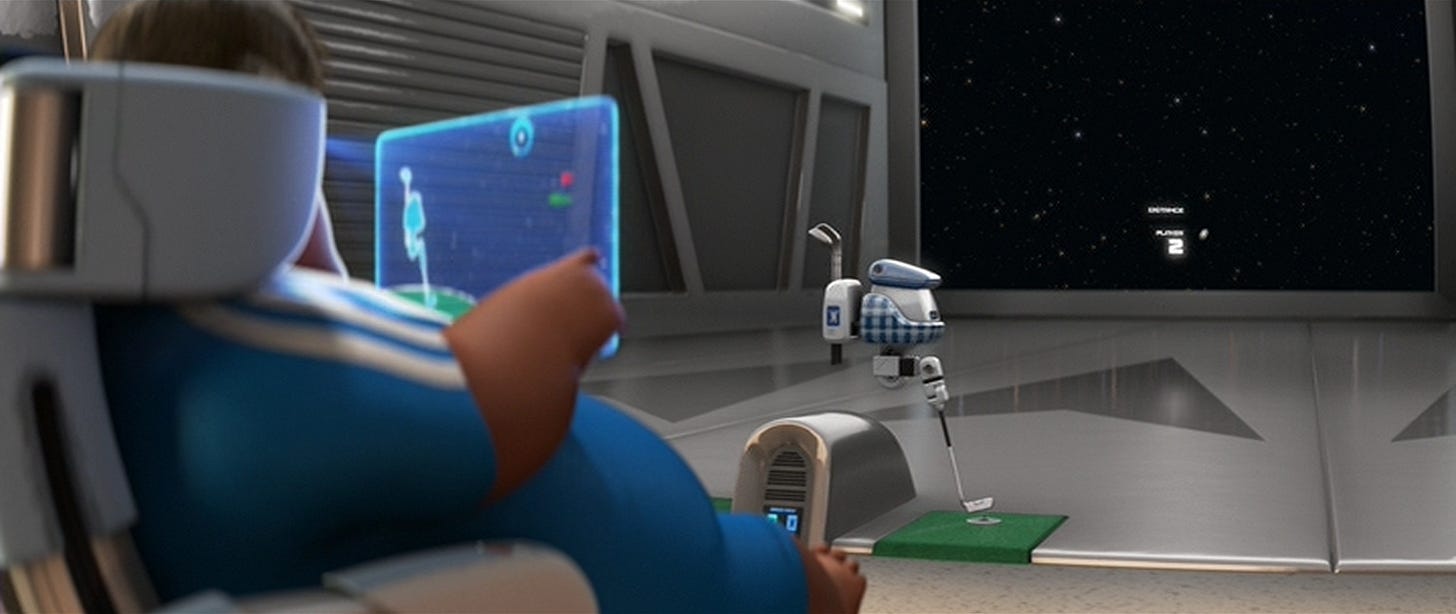“Let them be helpless like children, because weakness is a great thing, and strength is nothing. […] Hardness and strength are death’s companions. Pliancy and weakness are expressions of the freshness of being. Because what has hardened will never win.”
– Andrei Tarkovsky
The amount of work required to play at the highest level is a cosmic-level joke.
The work – actual sweat-ridden, bone-breaking, blood-stained travail – with all of the emotional wake that happens behind the scenes to truly and actively be at play, freely experiencing the accurate improvisational experience of turning idea into reality…..the work is grueling and it breaks people on its altar mercilessly.
To do something effortlessly requires a seemingly incommensurate amount of effort. Hours and hours of scales to access the one improvisational note that sends an audience into raptures. Days and days of repetitive wrist flicks to be able to backhand slice into no-man’s land and win a set. Years and years of underground, invisible work to capture a simple idea onto canvas. Lightness and ease are only ever sold at the price of toiling in the dark.
Accumulating the lessons of labor seems to be the preferred method for adults. Children seem to be able to do this without labor. They take on characters with fluidity, discarding what came before to become what’s needed as the game evolves. Now I’m the dad. Now I’m the adventurer crossing the gap between the couch and the coffee table. Now I’m back from the dead. New talents seem to emerge and be realized at the same moment they’re discovered. This stick is long; therefore, sword. Stuffed animal? No: husband, brother, aunt, orphan, evil queen, resurrected hero.
Johan Huizinga insists in his book Homo Ludens that play is the creative force behind civilization itself. Play is not a luxury; it’s constitutive. Too often of late, we assume that those at play are exercising a privilege when, in fact, if they stop, the whole social enterprise would collapse and regress until we found ourselves back again where we began: playing our way into the most heroic stories about ourselves. Play is not what we get when we’re done working. It’s the activity that’s required to get us out of the mess that only working has gotten us into.
Let’s assume then that there is no fixed relationship between work and play, and like most relationships, they are dynamic, shape-shifting, sensitive, and co-created. Work without play hardens. Play without work dissolves.
Work – even in the most generous imagination – struggles to escape the gravitational pull of concepts of duty and obligation. Work, labor, and capital rarely go anywhere without each other. Nor should they. We must be able to consciously and directly engage in the conversation about production, value creation, livelihood, and resource management. Yet, the rigidity of the conversation is liable to take over the experience of it. Much of the conversation in white-collar work happens on grids and in spreadsheets. The conversation in blue-collar work frequently happens via force, physical exertion, and workers’ comp. Both tend toward a binding hardness that erodes flexibility.
The type of play that people want to experience without work is plagiarized. It softens and dissolves the body, mind, and spirit. Playfulness that avoids work, shuns it, and scorns it leads to fatness. It also erodes flexibility through atrophy instead of overuse.
Flexibility of being is the spirit of play. And it takes work to exercise it.
Play is also among the most terrifying of experiences. Play is where everything is at risk for seemingly inexpensive yet existential stakes. Play is the serious unserious. The more one grasps to stay playful, the less playful they become. Like Captain Hook, who recognizes that to have good form is not to care about form at all.
There is an odd phenomenon that I’ll call the danger of disingenuous play: when we use play as a cop out. Whether it’s an attempt at generative creativity or an earnest, purposeful tease, we attempt something genuine and sincere, and then our nerve fails. We get overly self-conscious of either the attempt or the result and bail out, uttering a seemingly innocuous, but utterly damning phrase: “I was just playing.”
One of the things I hear in there is the distinction between being cynical and being sincere; between the prevalent Modern & Enlightenment attitude of irony and the Romantic attitude of earnestness. It is incongruous to claim “I was just playing” in an attempt to position oneself as insincere. Play is always earnest.
Over the past week or so, this theme has cropped up with my clients. How can I keep creating when things are so shitty? Cruelty, failure, meanness, disappointment, bad luck, and tragic sorrow crowd their thoughts. I’m not very interested in arguing with their premise. It’s more important to foster the healthy inner relationship between work and play that isn’t determined by any state of the world.
It takes great courage to be as forgetful as play requires. It takes great courage to remember (and hold fast to) that forgetfulness. Being naive is one of the hardest things to do on purpose. Some feats can only be accomplished through intentional, purposeful forgetting and intentional remembering.
[…]The poor women
at the fountain are laughing together between
the suffering they have known and the awfulness
in their future, smiling and laughing while somebody
in the village is very sick. There is laughter
every day in the terrible streets of Calcutta,
and the women laugh in the cages of Bombay.
If we deny our happiness, resist our satisfaction,
we lessen the importance of their deprivation.
We must risk delight. […]-Jack Gilbert, “A Brief for the Defense”
Surprise & delight only come about because of the flexibility of the person surprised and delighted. If you’ve ever had a surprise received poorly, you know how un-delightful it can be. Pliancy precedes them. Delight belongs to those who retain their pliancy, refreshing their being through the daily, diligent practice of play.



